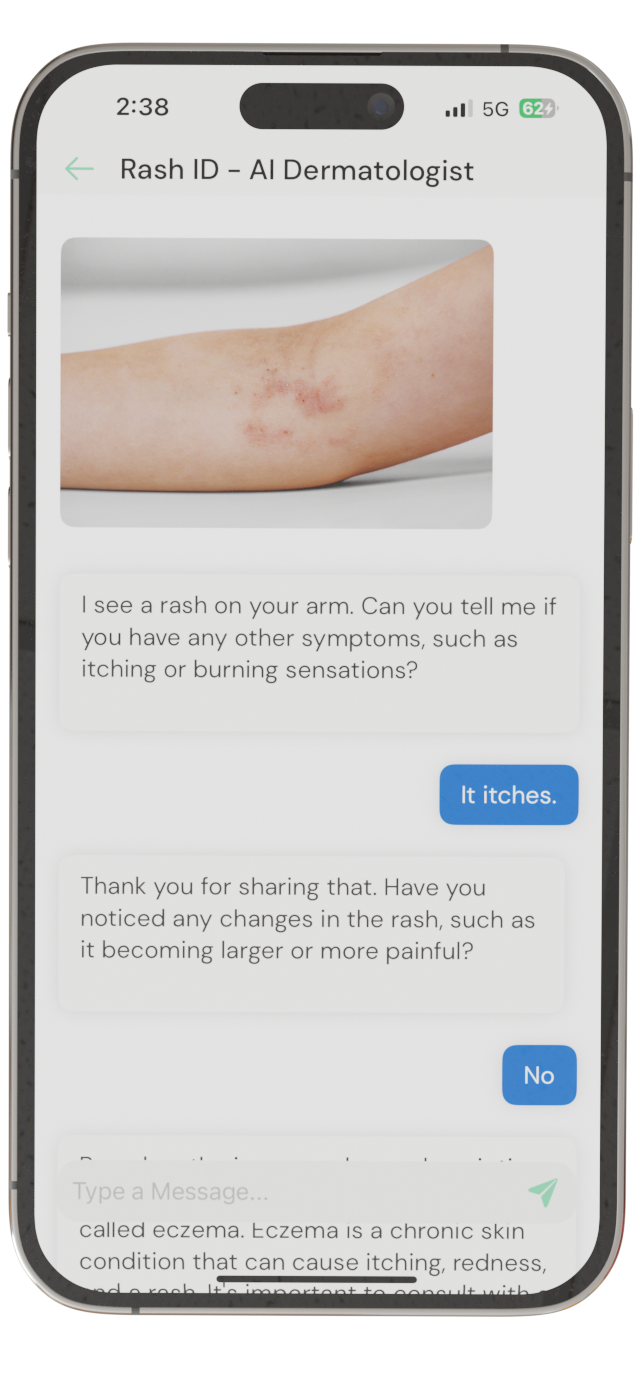
Understanding Chickenpox: Causes, Symptoms, Treatment, and Prevention
Chickenpox, also known as varicella, is a highly contagious viral infection that primarily affects children but can occur in adults. Identifying and managing this condition early is essential to prevent complications and ensure a smooth recovery. In this comprehensive guide, we’ll explore what chickenpox is, how it spreads, and the best ways to treat and prevent it.
What is Chickenpox?
Chickenpox is an infectious disease caused by the varicella-zoster virus (VZV). It is characterized by an itchy, blister-like rash and is usually mild in children. However, it can be more severe in adults and individuals with weakened immune systems. Chickenpox is the precursor to shingles, a painful skin rash that can occur later in life when the virus reactivates.
Transmission
Chickenpox spreads easily from person to person through direct contact with the rash or through respiratory droplets from coughing or sneezing. It is contagious from one to two days before the appearance of the rash and continues to be contagious until all blisters have crusted over.
Recognizing Chickenpox: Symptoms and Signs
Symptoms often appear 10 to 21 days after exposure to the virus and last about five to 10 days. Initial symptoms may include:
- Fever: Often one of the first signs of infection.
- Headache: Accompanying the fever, individuals may experience headaches.
- Fatigue: A general feeling of weakness and fatigue.
- Loss of Appetite: Decreased desire to eat.
The hallmark of chickenpox is its itchy rash, which goes through three phases:
- Raised Pink or Red Bumps (Papules): These appear over several days.
- Fluid-Filled Blisters (Vesicles): Form in about a day, then break and leak.
- Crusts and Scabs: Over the next few days, the blisters crust over and start to heal.
Who is at Risk for Chickenpox?
While anyone who hasn’t had chickenpox or hasn’t been vaccinated can catch the virus, certain groups are more at risk of complications, including:
- Newborns and infants whose mothers never had chickenpox or the vaccine.
- Pregnant women.
- People with weakened immune systems due to illness or medications (e.g., chemotherapy, organ transplant recipients).
Diagnosis and Testing
Chickenpox is usually diagnosed based on the characteristic rash and other symptoms. In cases where the diagnosis is uncertain, a healthcare provider may order laboratory tests, such as:
- Polymerase Chain Reaction (PCR): Detects the varicella-zoster virus DNA in fluid from a blister or blood.
- Blood Tests: Can confirm immunity to the virus.
Management and Treatment
There is no cure for chickenpox, but treatment focuses on alleviating symptoms. Standard treatments include:
- Antihistamines: To relieve itching. Examples include diphenhydramine (Benadryl®).
- Calamine Lotion or Oatmeal Baths: Soothe irritated skin.
- Pain Relievers: Such as acetaminophen (Tylenol®). Aspirin should be avoided due to the risk of Reye’s syndrome.
Antiviral Medication
In severe cases, or for those at high risk for complications, antiviral medications like acyclovir (Zovirax®) may be prescribed to reduce the severity and duration of symptoms.
Link to more information on antiviral medications
Complications
While complications are rare, they can occur, especially in adults. These may include:
- Bacterial Infections: Of the skin and soft tissues.
- Pneumonia: Viral or bacterial infections of the lungs.
- Encephalitis: Inflammation of the brain.
Prevention
The best way to prevent chickenpox is through vaccination. The varicella vaccine is highly effective at preventing the infection or, if contracted, results in milder symptoms. The CDC recommends two doses of the chickenpox vaccine for children, adolescents, and adults who have never had the disease.
Hygiene and Care
- Avoid scratching to prevent skin infections.
- Maintain good hygiene, keep fingernails trimmed.
- Isolate infected individuals from school or daycare until all lesions have crusted.
Learn more about chickenpox vaccination
Outlook / Prognosis
Most children recover from chickenpox without significant complications. For those vaccinated, breakthrough infections tend to be milder. However, adults and those with compromised immune systems may experience a more severe disease course.
When to Contact a Healthcare Provider
Seek medical attention if the chickenpox rash spreads to one or both eyes, if it becomes very red, warm or tender, or if it is accompanied by high fever, dizziness, shortness of breath, or confusion.
Questions to Ask Your Doctor
- How can I support recovery at home?
- Are there specific treatments or medications to consider?
- Should family members get vaccinated?
- How can I prevent spreading chickenpox to others?
Chickenpox: Resources for Parents and Caregivers
If someone in your home has chickenpox, understanding the causes, symptoms, and treatments will help ensure their comfort and prevent the spread of the virus to others. Vaccination remains the most effective preventive measure against chickenpox and its potential complications.

Identify Skin Conditions Instantly
Try Rash ID for Free